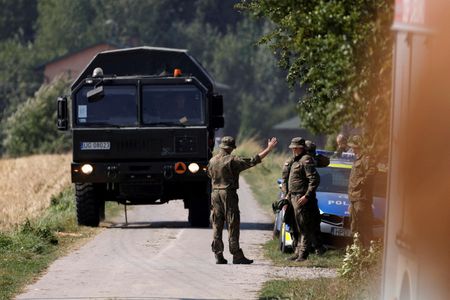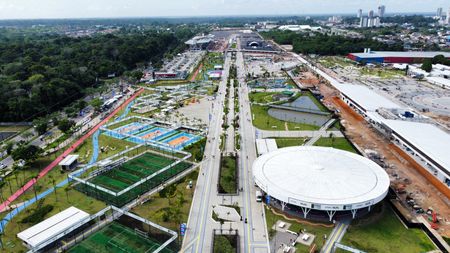By Markus Wacket
Berlin, September 10 (Reuters) -The German government approved new rules on Wednesday that legally oblige operators of critical infrastructure in the country to protect their plants and networks.
The rules come in response to a sharp deterioration in the security environment since Russia’s 2022 full-scale invasion of Ukraine and a growing awareness of Europe’s vulnerability to natural disasters and sabotage or terrorist attacks on infrastructure.
The KRITIS law, which implements a European Union directive, obligates companies in sectors like energy, transport, finance, health and water to secure their installations.
That could include measures like building barbed-wire fences around power stations or installing security cameras and motion detectors. Companies must prepare inventories of vulnerable infrastructure and register them.
Authorities have been warning of the growing risks to critical infrastructure of sabotage by Russia or cyberattacks from China. They have blamed Russia for a series of firebomb attacks on mail infrastructure in Germany and Poland.
Both countries deny they conduct such campaigns.
At a minimum, German companies would have to examine their risk exposure, prepare resilience plans and report major outages to authorities, who can impose fines on entities that fail to follow the rules.
Under the law, infrastructure that provides services to at least 500,000 people counts as critical.
(Reporting by Markus Wacket; Writing by Thomas Escritt; Editing by Bernadette Baum)











